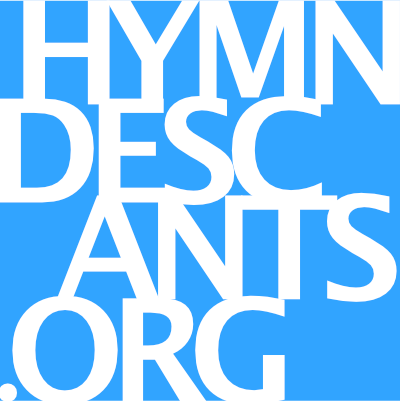EDMONTON is a widely used alternate name for this tune
Audition: The Hymnal 1982 with organ - our own harm. (a cappella) - descant with harmonization Free score.
1. The Hymnal 1982
O Zion, open wide thy gates,
let symbols disappear;
a priest and victim, both in one,
the Truth himself, is here.
4. satb, harm. Maurand (avail. next column)
But silent knelt the mother blest
of the yet silent Word,
and pondering all things in her heart,
with speechless praise adored.
5. descant
All glory to the Father be,
all glory to the Son,
all glory, Holy Ghost, to thee,
while endless ages run.
The only composition attributed to William Weale (aka Wheal), this tune was originally in triple meter - as is this version - and is almost universally recognized as BEDFORD; Weale was organist of St. Paul's, Bedford UK beginning in 1715 until his death twelve years later. The date of original publication is not certain, though an undated version (below) exists in Francis Timbrell's The Divine Musick Scholar's Guide, a copy of which was found in a personal library with an ejus libre inscription dated 1723; it is in three-part notation with the tune marked 'Cantus' with separate parts for 'Medius' and 'Bassus' (in standard practice, the Medius was written in treble clef an octave higher than sung). A four-part version with figured bass, dated 1732, was published in The Harmonious Companion; or the Psalm-Singer's Magazine, which like the earlier version has syncopated cadences. BEDFORD appeared in 4/4 meter in Hymns Ancient and Modern (1861) but a few decades later, versions restored to triple meter began appearing. In Methodist use, it has never been anything else. In The Hymnal 1982 this tune bears the name EDMONTON, as did a version in the 1768 Methodist Harmonia Sacra; these versions replace medial and cadential syncopations with passing notes. It also appears similarly configured in John Wesley's Sacred Melody (1761) as LIVERPOOLE. The page scans available on the Hymnary website provide a visual catalog of differing metrical treatments. The bells, and later a carillon, of the Bedford church rang this tune in the composer's honor for more than a century.
Church and Organ Music, "The Musical Times," Vol. 49, No. 781 (Mar. 1, 1908), pp. 165-169
JSTOR free with Google or Facebook login)
St. Paul's Church website
The Musical Times and Singing-class Circular, Volume 38 Google ebook (free)
Weale, William (or Wheal) Scottish Church Music: Its Composers and Sources, Google ebook (free)
BEDFORD (Wheal) The Hymnary
The Hymnal 1982 Companion (Church Hymnal Corp, New York, 1990), Vol. 3, pp 503ff, ed. Raymond Glover
Harmonia Sacra (ed. Thomas Butts, with tune labeled EDMONTON)
Harmonia Sacra(ed. Timothy Essex) - click link (or scroll) to page 13*
*This series is not the well-known Mennonite shape note collection of the same name edited by Joseph Funk, first published in 1832, and still in publication.
O Zion open wide thy gates
v. 6.8.2
(Descant and full SATB harmonization)
Descant verse:
O Zion, open wide thy gates
All glory to the Father be,
all glory to the Son,
all glory, Holy Ghost, to thee,
while endless ages run.
– Brevarium Parisiense (1680), rev. Jean Baptiste de Santeul (1689); tr. Edward Caswall (1849)
© David Maurand. All rights reserved. CC-BY-ND-NC
Licensed for end-use (church or chapel services, and related sacred music events). Not for redistribution, republication, or publication without express written permission. Use the contact link on this website to inquire about other permissions.


